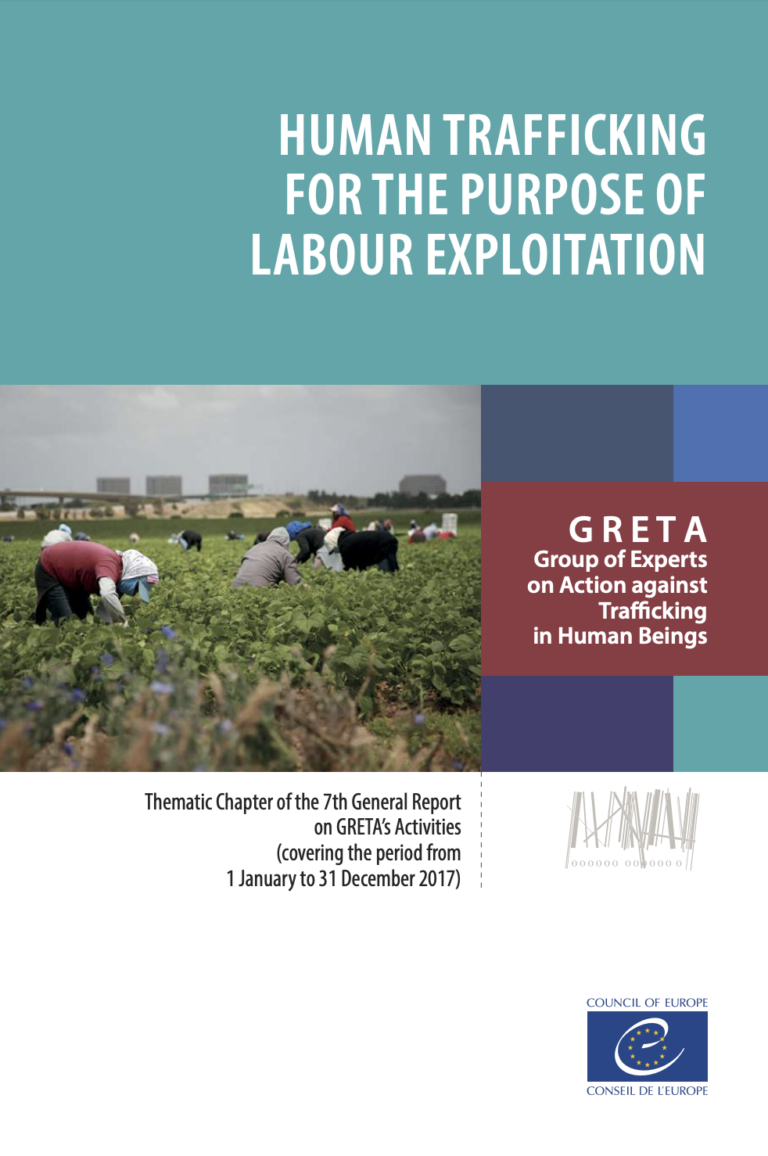In the course of the first evaluation round of the Council of Europe Convention on Action against Trafficking in Human Beings, the Group of Experts on Action against Trafficking in Human Beings (GRETA) noted that a number of Parties to the Convention failed to acknowledge the existence or scale of human trafficking for the purpose of labour exploitation, and did not address it sufficiently in their policy and practice. Therefore, for the second round of evaluation of the Convention, GRETA decided to pay particular attention to measures taken by States Parties to prevent and combat trafficking for the purpose of labour exploitation. GRETA has dedicated a thematic section in the 7th General Report to the issue of trafficking for the purpose of labour exploitation, based on the country evaluation reports published until the end of 2017.
GRETA’s monitoring under the second evaluation round suggests that in several countries, some progress has been made in the area of compensation to victims of trafficking. Despite the positive examples, effective access to compensation remains out of reach for most trafficked people. In many countries, there is no recorded information on any compensation received by victims of trafficking and several countries still lack State compensation schemes accessible to victims of trafficking. This amounts to a major failing of states in their duty to help trafficked people, and makes their rehabilitation all the more difficult.
In the majority of countries evaluated under the second evaluation round of the Convention, available statistical information on investigations, prosecutions and convictions in human trafficking cases was not disaggregated by form of exploitation. Nevertheless, it is clear that there have been few successful prosecutions and convictions for trafficking for the purpose of labour exploitation. Many States Parties have referred to difficulties regarding the prosecution of cases of trafficking for the purpose of labour exploitation. GRETA has recalled the positive obligation of States to investigate human trafficking, established by the European Court of Human Rights in its judgment in the case of Rantsev v. Cyprus and Russia and confirmed in Chowdury and others v. Greece.

